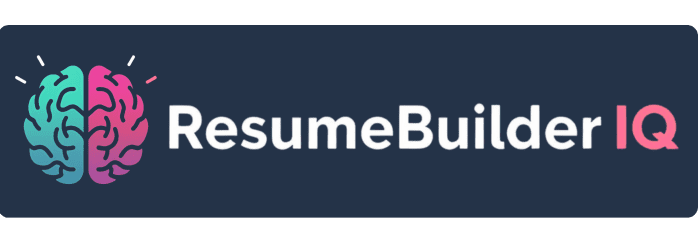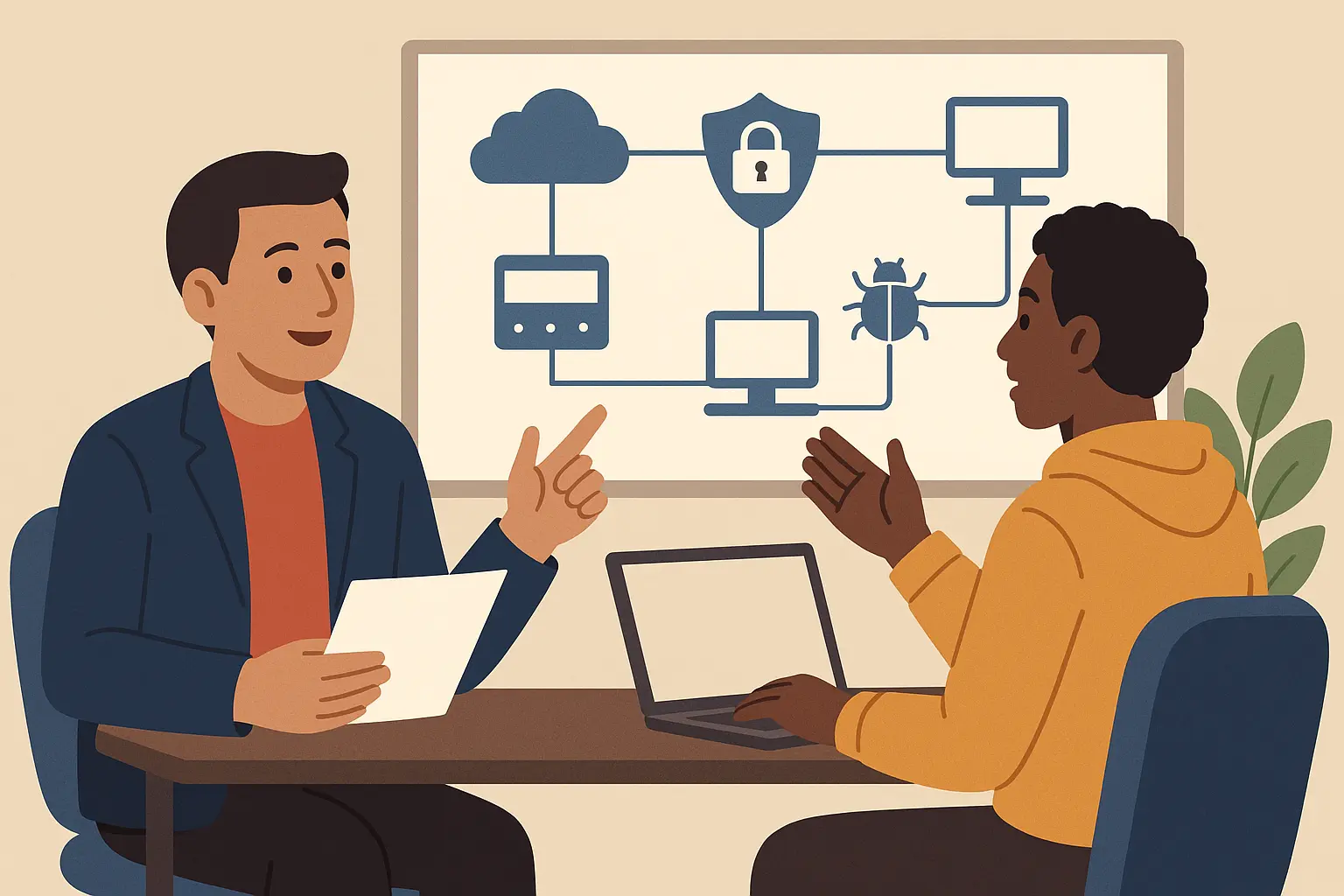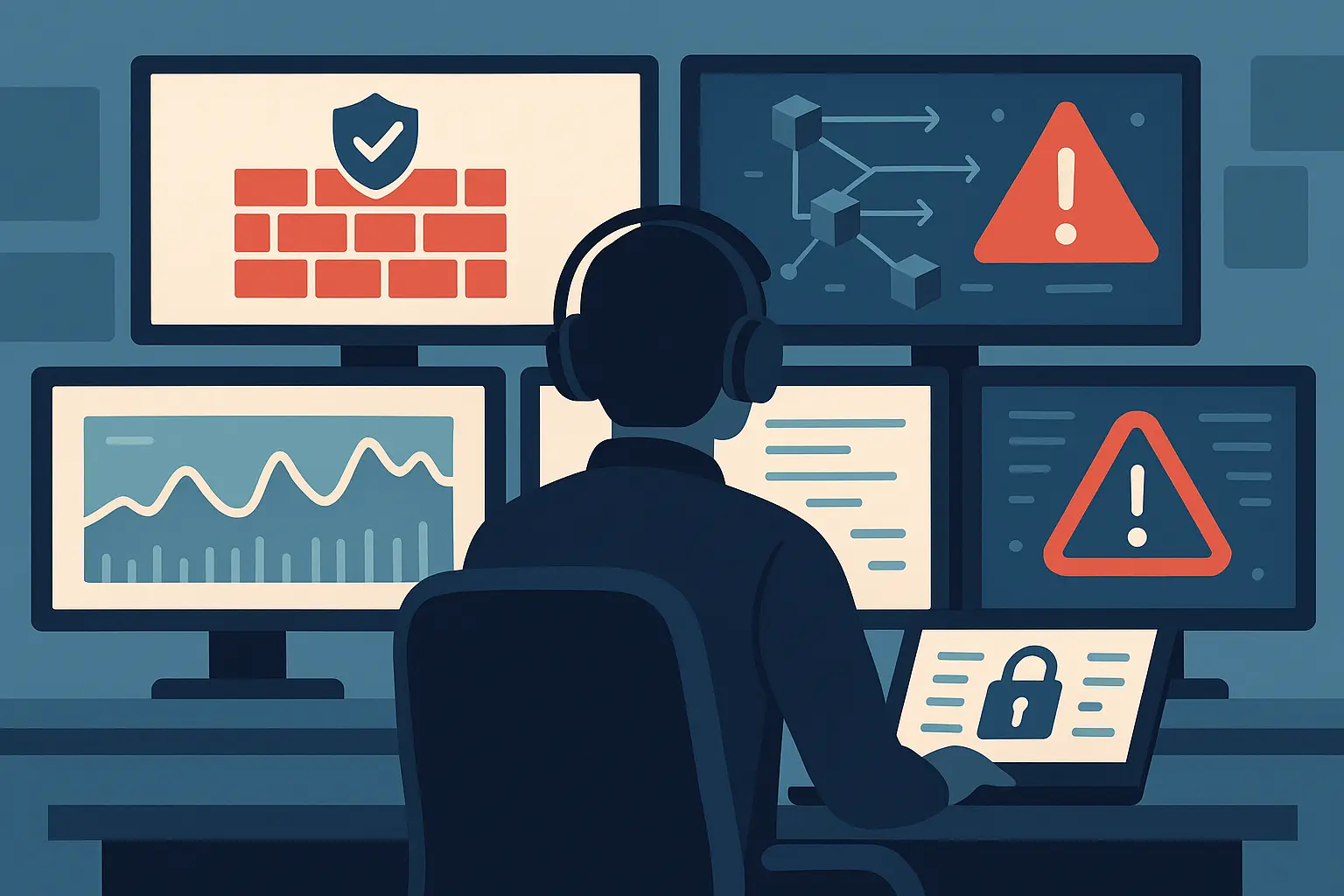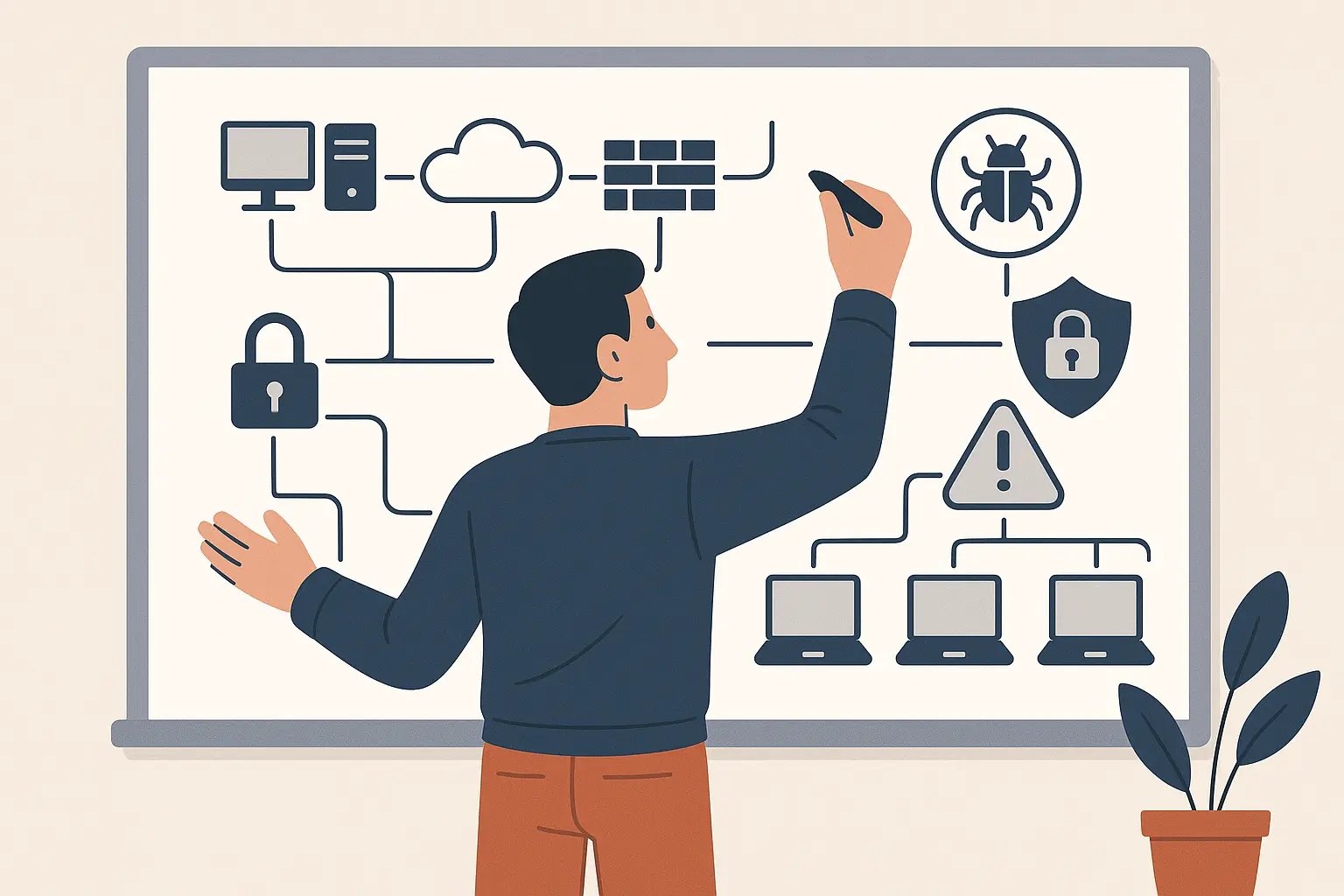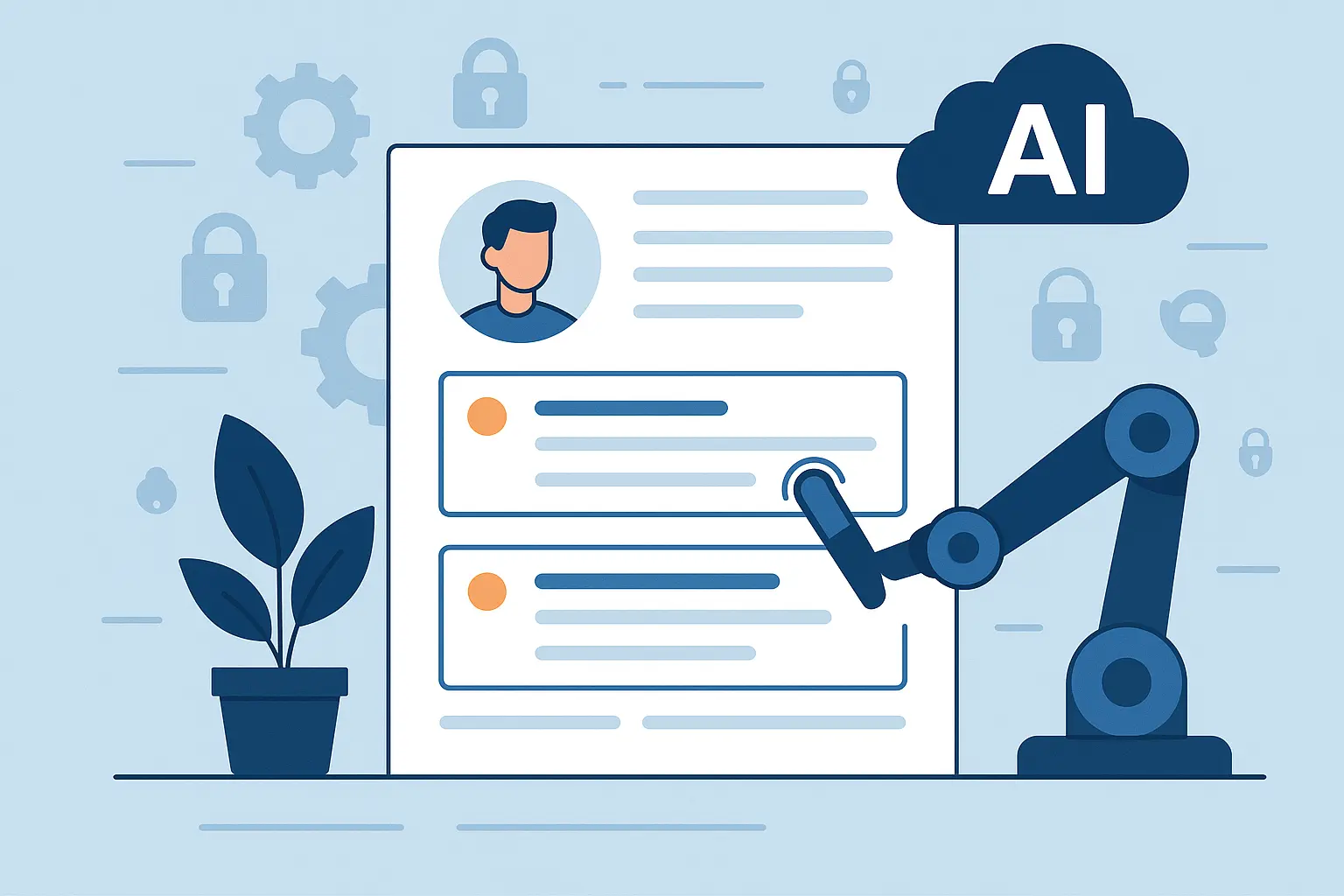Cybersecurity Interview Questions That Actually Matter (And How I Learned to Answer Them)

I bombed my first cybersecurity interview. Hard. I knew the technical stuff inside and out, but when they asked me to explain a SQL injection to a CEO, I froze. That failure taught me what really matters in these interviews – it’s not just about memorizing cybersecurity interview questions and answers, it’s about understanding what interviewers really want to know.
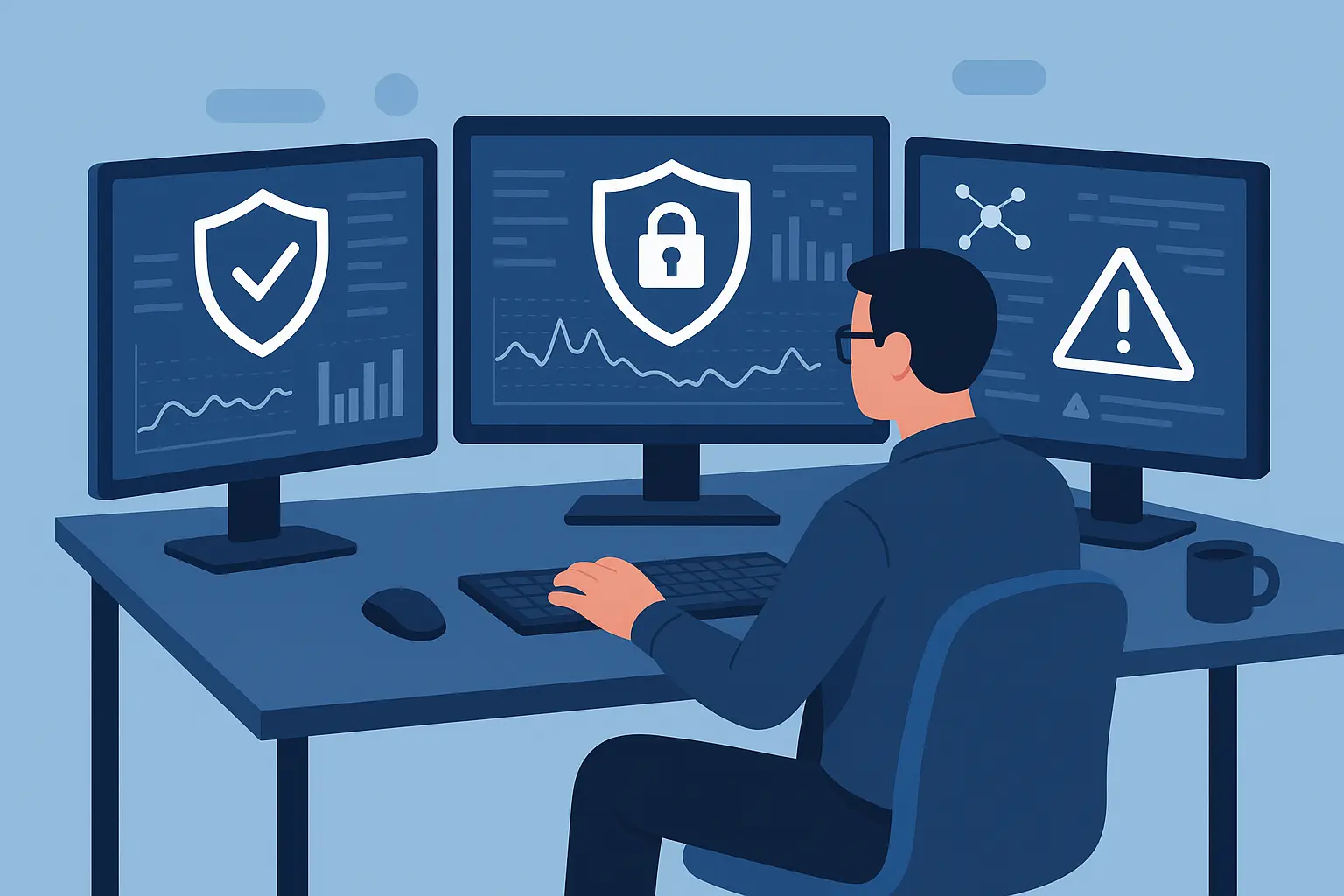
Table of Contents
-
Understanding What Interviewers Really Want to Know
-
Core Technical Skills That Make or Break Your Interview
-
Network Security Knowledge You Can’t Fake
-
Vulnerability Management Expertise That Impresses
-
Incident Response Stories That Land You the Job
-
Behavioral Questions That Reveal Your True Potential
-
Role-Specific Skills That Set You Apart
-
Advanced Preparation Tactics I Wish I’d Known Earlier
-
Common Mistakes That Kill Your Chances
-
Salary Negotiation Strategies for Cybersecurity Roles
-
How Resume Builder IQ Transforms Your Job Search
-
Final Thoughts
TL;DR
-
Master the fundamentals first – CIA triad, authentication vs authorization, and common attack vectors form the foundation of every cybersecurity interview
-
Prepare specific examples of incident response, vulnerability assessments, and security implementations you’ve handled
-
Practice explaining technical concepts to non-technical stakeholders – this skill separates good candidates from great ones
-
Know your tools inside and out – SIEM platforms, vulnerability scanners, and forensics software proficiency is expected
-
Develop compelling stories that showcase leadership, crisis management, and cross-functional collaboration
-
Research role-specific requirements thoroughly – SOC analyst interviews differ drastically from security architect assessments
-
Prepare for hands-on demonstrations, whiteboarding exercises, and live troubleshooting scenarios
-
Understand current market compensation trends and prepare your negotiation strategy before the offer stage
Understanding What Interviewers Really Want to Know
Look, I used to think cybersecurity interviews were just tech pop quizzes. Boy, was I wrong.
After bombing a few interviews early in my career, I realized something: when they ask you about firewall rules, they don’t just want to know if you can configure one. They want to see how you think through problems, explain your reasoning, and handle the inevitable “but why?” follow-up questions.
Here’s what really opened my eyes – during one interview, I watched a candidate with fewer certifications than me absolutely nail it. Why? Because instead of rattling off textbook definitions, she said, “When I implemented our new firewall policy last year, we had to balance security with user productivity. Here’s how I approached that trade-off…”
That’s when it clicked. They’re not testing your memory – they’re evaluating whether you can actually do the job.
The Real Purpose Behind Technical Questions
When an interviewer asks about SIEM tuning, they’re really asking: “Can you cut through the noise and find the real threats?” When they bring up incident response, they want to know if you’ll panic or lead when everything hits the fan at 3 AM.
I learned to prepare stories, not just facts. Instead of saying “I know how to analyze malware,” I’d say “Last month, I tracked down a polymorphic virus that was evading our signature-based detection by analyzing its behavioral patterns and implementing custom heuristic rules.”
Most candidates think technical questions are just about proving you know the material. That’s only half the story. When an interviewer asks about firewall configurations or SIEM tuning, they’re really evaluating your thought process and practical experience.
I’ve noticed that successful candidates don’t just recite textbook definitions – they share specific examples of challenges they’ve faced and solutions they’ve implemented. They explain their reasoning behind security decisions and acknowledge trade-offs they’ve had to make.
What Behavioral Questions Actually Reveal
Here’s the thing about cybersecurity – you’re not just protecting servers and data. You’re the person who has to tell the CEO that yes, we’ve been breached, and no, we can’t just “unhack” ourselves.
Those behavioral questions about handling difficult stakeholders? They’re really asking if you can explain to the marketing director why their new campaign landing page needs security reviews, or if you’ll crumble under pressure when legal needs a forensics report in two hours.
Behavioral questions in cybersecurity interviews serve a unique purpose. Security professionals often work under intense pressure during incidents, communicate with executives during crises, and make decisions that impact entire organizations.
When preparing for these discussions, understanding how to effectively follow up after interviews demonstrates professionalism that sets security candidates apart from the competition.
When someone asks about a time you handled a difficult stakeholder or managed a security incident, they’re assessing your emotional intelligence, communication skills, and leadership potential. These soft skills often determine career advancement more than technical expertise alone.
Core Technical Skills That Make or Break Your Interview
The fundamentals aren’t just checkboxes – they’re the foundation everything else builds on. But here’s what separates good answers from great ones: context.
The foundation of any cybersecurity interview rests on your understanding of fundamental security principles, common attack vectors, and basic defensive strategies. Interviewers expect you to articulate the CIA triad clearly, distinguish between authentication and authorization, and explain how various types of malware operate. These concepts form the building blocks for more advanced discussions about security architecture and incident response.
Security Fundamentals You Must Master
Don’t just memorize the CIA triad. I once had an interviewer ask me to explain confidentiality, and instead of the textbook definition, I said: “Confidentiality means the wrong people can’t see your data. Like when I implemented encryption for our customer database – even if someone grabbed the files, they’d just see gibberish without the keys.”
Authentication versus authorization trips people up constantly. Here’s how I explain it: Authentication is like showing your ID at a club – proving who you are. Authorization is the bouncer deciding if you can get into the VIP section. Simple, but it works.
The CIA triad isn’t just an acronym to memorize – it’s a decision-making framework that guides every security choice you’ll make. When I explain confidentiality, I talk about encryption implementations I’ve deployed. For integrity, I discuss hash verification processes and digital signatures. Availability gets interesting when you start talking about redundancy, disaster recovery, and business continuity planning.
Multi-factor authentication, single sign-on, and role-based access control all build on this distinction between authentication and authorization, making it crucial to master these cybersecurity interview questions fundamentals.
|
Security Principle |
Definition |
Common Implementation |
|---|---|---|
|
Confidentiality |
Ensuring information is accessible only to authorized individuals |
Encryption, access controls, data classification |
|
Integrity |
Maintaining accuracy and completeness of data |
Digital signatures, hash functions, checksums |
|
Availability |
Ensuring authorized users have access when needed |
Redundancy, backups, disaster recovery |
|
Authentication |
Verifying the identity of users or systems |
Passwords, biometrics, certificates |
|
Authorization |
Determining what authenticated users can access |
RBAC, ACLs, permissions |
Attack Vectors That Actually Matter
When malware discussions come up, have specific examples ready. “I once dealt with ransomware that was spreading through our network via SMB shares. Here’s how I contained it…” beats any textbook definition.
Social engineering comes up in every interview because it’s still how most breaches start. Don’t just say “phishing is bad.” Share how you’ve dealt with it. Maybe you designed a training program that reduced click rates by 60%, or you implemented email filtering that caught 99% of suspicious messages.
Social engineering questions come up in almost every cybersecurity interview because human factors remain the weakest link in most security programs. I prepare specific examples of phishing campaigns I’ve encountered, security awareness training programs I’ve developed, and cultural changes I’ve helped implement.
Malware classification goes beyond memorizing definitions. Interviewers want to hear about detection methods you’ve used, prevention strategies you’ve implemented, and incident response procedures you’ve followed for different malware types.
During a recent interview, a candidate impressed the panel by describing how they identified a polymorphic virus that was evading traditional signature-based detection. They explained their process of analyzing behavioral patterns, implementing heuristic detection rules, and coordinating with the incident response team to contain the threat across 500+ endpoints within four hours. This example demonstrates the practical application that makes cybersecurity interview questions memorable and impactful.
Network Security Knowledge You Can’t Fake
Network security is where theory meets reality, fast. You either know how traffic flows through your environment or you don’t – and interviewers can tell the difference immediately.
Network security forms the backbone of most cybersecurity roles, requiring deep understanding of firewall management, intrusion detection systems, and traffic analysis. Interviewers expect candidates to demonstrate hands-on experience with enterprise-grade security equipment, explain complex filtering rules, and discuss integration challenges with existing infrastructure. This knowledge area often separates theoretical candidates from those with practical experience.
Firewall Configuration That Shows Real Experience
Talking about “allow and deny rules” won’t impress anyone. Instead, be ready to discuss specific scenarios: “We had a vendor that needed access to our database servers, but only during business hours and only from their specific IP range. Here’s how I configured the rules to make that happen while maintaining our security posture.”
DMZ configurations, NAT policies, application-layer filtering – these aren’t just concepts to memorize. They’re tools you use to solve real business problems while keeping bad guys out.
Talking about firewall rules in abstract terms won’t impress anyone. I’ve learned to prepare specific examples of DMZ configurations I’ve implemented, traffic filtering challenges I’ve solved, and next-generation firewall features I’ve deployed.
Stateful inspection and application-layer filtering require understanding of network protocols and traffic patterns. When discussing these concepts, I reference actual network architectures I’ve secured and explain the business requirements that drove my design decisions.
Intrusion Detection Systems That Actually Work
Here’s what I wish someone had told me early on: IDS systems are only as good as the person tuning them. Out of the box, they’re basically fancy log collectors that cry wolf constantly.
The real skill is in reducing false positives while maintaining detection effectiveness. I once inherited a SIEM that generated 10,000 alerts per day. After three months of tuning, we were down to 50 meaningful alerts daily with zero missed incidents. That’s the kind of story that gets you hired.
IDS/IPS systems generate massive amounts of data, and managing false positives becomes a critical skill. I prepare examples of custom rules I’ve created, tuning processes I’ve implemented, and SIEM integrations I’ve configured.
Signature-based detection versus anomaly detection represents different philosophical approaches to threat identification. Understanding when to use each method and how to combine them effectively demonstrates sophisticated security thinking that interviewers look for in cybersecurity interview questions.
Vulnerability Management Expertise That Impresses
Vulnerability management isn’t just running Nessus scans and calling it a day. It’s about understanding risk in business terms and making smart decisions about what to fix first.
Vulnerability management encompasses risk assessment methodologies, penetration testing techniques, and patch management strategies that keep organizations secure. Interviewers look for candidates who understand frameworks like NIST and ISO 27001, can calculate meaningful risk scores, and have experience with both automated scanning tools and manual testing approaches. This area tests your ability to prioritize threats based on business impact.
According to industry data, organizations experienced an average of 1,636 cyber attacks per week in Q2 2024, representing a 30% year-over-year increase. This statistic underscores why vulnerability management has become such a critical focus area for hiring managers.
Risk Assessment That Makes Business Sense
Risk frameworks like NIST are useful, but here’s what really matters: Can you look at a critical vulnerability in a public-facing web server and a medium-risk issue in an isolated development system and correctly prioritize the web server? Can you explain why to someone who doesn’t speak security?
I learned to think like the business. A vulnerability that could expose customer data gets fixed immediately. One that might let someone access the break room printer? That can wait.
Risk assessment frameworks like NIST, ISO 27001, and FAIR provide structure for evaluating threats, but applying them effectively requires business acumen. I practice calculating risk scores using likelihood and impact matrices, but more importantly, I prepare examples of how I’ve communicated these risks to different stakeholders.
Quantitative risk analysis gets technical quickly, but qualitative assessments often drive actual business decisions. Understanding both approaches and knowing when to use each one demonstrates mature security thinking that stands out in cybersecurity interview questions.
Penetration Testing Beyond the Basics
OWASP Top 10 is table stakes – everyone knows those vulnerabilities. What sets you apart is understanding methodology and being able to think like an attacker.
During one interview, they asked about SQL injection. Instead of just explaining the attack, I walked through my testing process: “First, I try basic payloads to see if the application is vulnerable. Then I determine the database type and structure. Finally, I assess what data I can access and document the business impact.” That methodology shows real experience.
OWASP Top 10 vulnerabilities provide a starting point for penetration testing discussions, but interviewers want to hear about your methodology and thought process. I prepare examples of testing scenarios I’ve designed, remediation strategies I’ve recommended, and follow-up validation I’ve performed.
Automated scanning tools versus manual testing techniques serve different purposes in a comprehensive security assessment. Explaining when to use each approach and how to combine their results shows sophisticated understanding of vulnerability assessment.
A successful penetration tester once described during an interview how they discovered a critical SQL injection vulnerability that automated scanners missed. They explained their manual testing methodology, how they identified the blind SQL injection through time-based techniques, and the business impact assessment that led to emergency patching within 24 hours.
Incident Response Stories That Land You the Job
This is where you separate yourself from candidates who’ve never been in the trenches. Incident response stories reveal everything – your technical skills, leadership ability, and how you perform under pressure.
Incident response capabilities often determine hiring decisions because they demonstrate how candidates perform under pressure and manage complex, high-stakes situations. Interviewers want to hear detailed stories about security breaches you’ve handled, evidence collection procedures you’ve followed, and crisis communication strategies you’ve implemented. These scenarios reveal leadership potential and practical experience that can’t be taught from textbooks.
Crisis Management That Shows Leadership
I’ll never forget my first major incident – a suspected data breach at 11 PM on a Friday. Half the team was unreachable, management was panicking, and I had to coordinate the response while figuring out what actually happened.
That’s the kind of story that resonates in interviews. Not because it went perfectly (it didn’t), but because it shows you can function when everything’s on fire. Have specific examples ready: How did you classify the incident? Who did you notify first? What evidence did you preserve?
Incident classification systems and escalation procedures provide structure during chaotic situations. I prepare specific examples of incidents I’ve managed, explaining how I determined severity levels, coordinated response teams, and communicated with stakeholders throughout the process.
Evidence collection and chain of custody requirements become critical when incidents have legal implications. Understanding proper imaging techniques, documentation standards, and legal admissibility criteria demonstrates professional-level incident response capabilities.
Digital Forensics Skills That Matter
Forensics isn’t just about fancy tools – it’s about methodical investigation and maintaining evidence integrity. When I explain memory analysis, I don’t just mention Volatility. I describe a specific case where I used it to identify a rootkit that was hiding in kernel memory, and how that discovery changed our entire response strategy.
Chain of custody might seem boring, but it’s what makes your investigation legally defensible. One small mistake can invalidate months of work.
Memory and disk analysis require specialized tools and techniques that many security professionals never master. I prepare examples of forensics investigations I’ve conducted, explaining the tools I used (Volatility, Autopsy, SIFT workstation) and the evidence I recovered.
Network traffic analysis using Wireshark and similar tools helps reconstruct attack timelines and identify indicators of compromise. Demonstrating proficiency with packet analysis and protocol behavior shows deep technical understanding that impresses in cybersecurity interview questions.
Behavioral Questions That Reveal Your True Potential
Technical skills get you in the room, but behavioral questions determine if you get the job. They’re evaluating whether you can lead, communicate, and make good decisions under pressure.
Behavioral questions in cybersecurity interviews assess soft skills that determine career success – leadership during crises, communication with non-technical stakeholders, and collaboration across organizational boundaries. These questions reveal how candidates handle pressure, manage competing priorities, and influence others without formal authority. Strong answers demonstrate emotional intelligence and strategic thinking that complement technical expertise.
Leadership Stories That Resonate
Leadership in cybersecurity often means influencing without authority. You’re the person telling other departments they can’t do something for security reasons, or convincing executives to invest in tools they don’t understand.
I prepare stories about times I’ve had to say no to powerful stakeholders and make it stick. Like when the sales team wanted to bypass our security review process for a “critical” deal. How do you handle that conversation? That’s what they want to know.
Stakeholder management in cybersecurity requires translating technical risks into business language that executives understand. I prepare examples of executive presentations I’ve delivered, risk dashboards I’ve created, and ROI calculations I’ve developed for security investments.
Cross-functional collaboration becomes essential when implementing security controls that affect business operations. Successful candidates share stories about working with IT teams, legal departments, and business units to achieve security objectives without hindering productivity.
Developing strong soft skills for your resume becomes particularly important in cybersecurity roles where technical expertise must be balanced with communication and leadership abilities.
Communication Skills That Set You Apart
The best security professionals can explain complex threats in simple terms. Practice describing a DDoS attack to your grandmother, or explaining why zero-trust matters to a CFO who only cares about costs.
During one interview, they asked me to explain a recent security incident to three different audiences: technical staff, middle management, and the board of directors. Same incident, three completely different explanations. That’s a skill you can’t fake.
Crisis communication during security incidents tests your ability to manage internal and external stakeholders simultaneously. I prepare examples of breach notifications I’ve managed, media inquiries I’ve handled, and regulatory reporting I’ve completed.
Executive reporting requires distilling complex technical issues into actionable business intelligence. Practice creating risk heat maps, compliance dashboards, and security metrics that drive decision-making at the C-level.
Behavioral Interview Preparation Checklist:
-
Prepare 3-5 STAR method examples for common scenarios
-
Practice explaining technical concepts to non-technical audiences
-
Develop stories showcasing leadership during crisis situations
-
Prepare examples of cross-functional collaboration
-
Practice discussing failures and lessons learned
-
Prepare questions about the company’s security challenges
Role-Specific Skills That Set You Apart
A SOC analyst interview looks nothing like a security architect interview. Know your lane and prepare accordingly.
Different cybersecurity roles require specialized knowledge and skills that generic preparation won’t cover. SOC analysts need SIEM platform mastery and threat hunting capabilities, while project managers require budget management and compliance program expertise. Understanding these role-specific requirements and preparing targeted examples demonstrates serious career focus and professional development.
Recent market analysis shows that cybersecurity job roles have increased by “62% over the past five years” according to Simplilearn, highlighting the growing demand for specialized security professionals across different domains.
Security Analyst Expertise That Counts
SOC work is about pattern recognition and rapid triage. You’re drinking from a fire hose of alerts, trying to separate real threats from noise. SIEM platforms are your primary tool, but the real skill is knowing what to look for.
Threat hunting takes this further – you’re proactively looking for bad guys who’ve already gotten past your defenses. It requires understanding attacker behavior and having the patience to follow subtle indicators through massive amounts of data.
SIEM platform mastery goes beyond basic log analysis – it requires understanding of correlation rules, custom dashboard creation, and alert tuning strategies. I prepare examples of advanced search queries I’ve developed, false positive reduction initiatives I’ve led, and detection effectiveness improvements I’ve achieved.
Threat hunting methodologies represent proactive security approaches that many organizations are adopting. Demonstrating knowledge of hypothesis-driven hunting, behavioral analysis techniques, and APT detection methods shows advanced security thinking.
Project Management Skills for Security Leaders
I’ve learned to speak business language when proposing security investments. Instead of “we need a SIEM,” I say “this tool will reduce our incident response time from hours to minutes and help us meet our compliance requirements.”
Security projects are different from regular IT projects. You’re often asking people to change how they work for reasons they don’t understand, with budgets that seem expensive and timelines that feel rushed.
Budget management and resource allocation require balancing security requirements with financial constraints. I prepare examples of business cases I’ve developed for security investments, vendor relationships I’ve managed, and project ROI I’ve tracked and reported.
Compliance program management involves understanding multiple regulatory frameworks and their practical implementation requirements. Experience with SOC 2, PCI DSS, HIPAA, and GDPR demonstrates breadth of knowledge that many organizations need.
|
Role |
Key Technical Skills |
Essential Soft Skills |
Typical Interview Focus |
|---|---|---|---|
|
SOC Analyst |
SIEM platforms, threat hunting, incident response |
Communication, attention to detail, teamwork |
Alert triage, escalation procedures |
|
Security Engineer |
Network security, cloud architecture, automation |
Problem-solving, documentation, collaboration |
Technical implementation, troubleshooting |
|
Security Manager |
Risk assessment, compliance, vendor management |
Leadership, strategic thinking, communication |
Team management, budget planning |
|
Penetration Tester |
Vulnerability assessment, exploitation, reporting |
Analytical thinking, creativity, ethics |
Methodology, tool proficiency |
|
Security Architect |
Enterprise architecture, threat modeling, design |
Strategic planning, stakeholder management |
Solution design, risk evaluation |
Cybersecurity interview questions vary dramatically based on the specific role you’re targeting. A SOC analyst position will focus heavily on alert triage and escalation procedures, while a security architect interview will emphasize solution design and strategic planning capabilities.
Advanced Preparation Tactics I Wish I’d Known Earlier
Basic preparation gets you to baseline competence. Advanced preparation gets you the job offer.
Advanced interview preparation goes beyond studying technical concepts to include mock interview practice, hands-on demonstration exercises, and salary negotiation strategies. These preparation tactics help candidates build confidence, refine their communication skills, and maximize their career advancement opportunities. The most successful candidates treat interview preparation as a comprehensive skill development process.
Mock Interview Techniques That Build Confidence
Practice explaining your thought process out loud. When someone asks about network segmentation, don’t just describe the end state – walk them through your decision-making process. “First, I’d inventory our current network topology. Then I’d identify critical assets and data flows. Next, I’d design zones based on trust levels…”
Whiteboarding exercises are common in senior roles. Practice drawing network diagrams, incident response flowcharts, and security architectures while explaining your thinking.
Technical demonstration exercises require explaining your thought process while solving problems in real-time. I practice whiteboarding network diagrams, analyzing security logs, and designing security architectures while articulating my reasoning and decision-making process.
Case study analysis helps prepare for scenario-based questions that many organizations use to evaluate problem-solving abilities. Studying famous security breaches, understanding their root causes, and developing prevention recommendations provides excellent interview material.
Salary Negotiation Preparation That Pays Off
Cybersecurity professionals have leverage – use it. Research market rates for your specific role and location. Understand the total compensation package, including bonuses, equity, and professional development opportunities.
Most importantly, be ready to articulate your unique value. What specific problems can you solve? What results have you delivered? Numbers matter – “reduced security incidents by 40%” is better than “improved security posture.”
Market research and benchmarking require understanding current compensation trends for your specific role, location, and experience level. I research salary ranges from multiple sources and prepare to discuss my unique value proposition and specific achievements that justify premium compensation.
Understanding the total compensation package beyond base salary – including bonuses, equity, benefits, and professional development opportunities – helps evaluate offers comprehensively and negotiate effectively.
Advanced Preparation Timeline:
-
Week 1-2: Technical skills review and hands-on practice
-
Week 3: Mock interviews and scenario-based exercises
-
Week 4: Company research and role-specific preparation
-
Week 5: Salary research and negotiation strategy
-
Week 6: Final review and confidence building
Common Mistakes That Kill Your Chances
I’ve seen great candidates torpedo themselves with easily avoidable mistakes. Learn from their pain.
Common interview mistakes in cybersecurity often stem from overconfidence in technical knowledge while neglecting communication skills, or from failing to prepare role-specific examples that demonstrate practical experience. Candidates frequently struggle with explaining complex concepts to non-technical audiences, providing vague answers without specific examples, and failing to research the organization’s specific security challenges and requirements.
Technical Knowledge Without Practical Application
Memorizing security concepts without understanding their practical application is like knowing every guitar chord but never playing a song. Interviewers can spot this immediately.
When discussing any technical topic, have a real-world example ready. Don’t just explain how encryption works – describe a specific implementation you’ve done and the challenges you faced.
Memorizing security concepts without understanding their practical application becomes obvious during interviews. Successful candidates share specific examples of implementations, challenges they’ve overcome, and results they’ve achieved rather than reciting textbook definitions.
Failing to connect technical decisions to business outcomes shows limited understanding of organizational priorities. Security professionals must understand how their work supports business objectives and contributes to organizational success.
Communication Failures That Hurt Your Prospects
Using too much jargon when explaining concepts to mixed audiences shows poor communication skills. The ability to adjust your technical level based on your audience is crucial in cybersecurity roles.
Vague answers without specific examples make it impossible for interviewers to assess your actual experience. “I have experience with incident response” tells them nothing. “I led the response to a ransomware incident that affected 500 endpoints and coordinated with legal, PR, and executive teams to contain the damage within 4 hours” tells them everything.
Using excessive technical jargon when explaining concepts to mixed audiences demonstrates poor communication skills. Practice explaining the same security concept at different technical levels depending on your audience’s background and needs.
Understanding how to write an effective cover letter that communicates your cybersecurity expertise clearly can set the foundation for successful interview conversations.
Providing vague answers without specific examples makes it difficult for interviewers to assess your actual experience and capabilities. Prepare detailed stories that showcase your skills and achievements with concrete results and measurable outcomes.
A candidate once lost a senior security architect position by providing only theoretical answers about zero-trust implementation. When asked about practical challenges, they couldn’t discuss specific network segmentation strategies, identity verification workflows, or integration hurdles they’d actually encountered, making it clear their knowledge was purely academic.
Salary Negotiation Strategies for Cybersecurity Roles
The cybersecurity talent shortage gives you negotiating power – if you know how to use it.
Cybersecurity professionals often have significant leverage in salary negotiations due to high demand and specialized skills, but many fail to capitalize on this advantage. Effective negotiation requires thorough market research, understanding of total compensation packages, and clear articulation of unique value propositions. Timing, preparation, and professional presentation of demands significantly impact negotiation outcomes.
Job growth for information security analysts is projected to rise 33% by 2033 according to the “U.S. Bureau of Labor Statistics”, with median pay reaching $120,360 in 2023, demonstrating the strong market position for cybersecurity salary negotiations.
Market Research That Informs Your Strategy
Compensation varies wildly based on role, location, industry, and experience level. A SOC analyst in Kansas City makes different money than a security architect in San Francisco. Do your homework.
Look beyond base salary. Many cybersecurity roles include significant bonus opportunities, equity participation, and valuable benefits like professional development budgets and conference attendance.
Compensation trends in cybersecurity vary significantly by role, location, industry, and experience level. I research multiple salary databases, network with professionals in similar roles, and understand regional market conditions that affect compensation ranges.
Understanding the difference between base salary, total cash compensation, and total compensation helps evaluate offers comprehensively. Many cybersecurity roles include significant bonus opportunities, equity participation, and valuable benefits that affect overall package value.
Negotiation Tactics That Actually Work
Timing matters. Don’t discuss salary until you have an offer, but don’t wait too long after receiving it. You want to negotiate while you still have leverage but before they’ve moved on to other candidates.
Present your value proposition clearly. Connect your specific skills and achievements to their needs. If they’re dealing with compliance issues and you’ve successfully managed SOC 2 audits, that’s worth premium compensation.
Timing your negotiation appropriately – typically after receiving an offer but before accepting – maximizes your leverage while maintaining positive relationships. Rushing into salary discussions too early or waiting too long can hurt your negotiating position.
Learning how to ask for a raise strategically provides valuable negotiation skills that apply to both initial salary discussions and future career advancement conversations.
Presenting your value proposition clearly requires connecting your specific skills and achievements to the organization’s needs and challenges. Quantifying your impact through metrics and examples strengthens your negotiating position significantly.
Salary Negotiation Preparation Template:
-
Research market rates for your role and location
-
Document specific achievements with quantifiable results
-
Prepare total compensation comparison spreadsheet
-
Practice articulating your unique value proposition
-
Plan negotiation timeline and key talking points
-
Identify non-salary benefits that matter to you
How Resume Builder IQ Transforms Your Job Search
Getting interviews requires more than just technical skills – you need a resume that effectively communicates your value to both ATS systems and human reviewers.
Resume Builder IQ addresses the unique challenges cybersecurity professionals face when translating technical expertise into compelling career documents that pass applicant tracking systems and resonate with hiring managers. The platform’s AI-powered optimization ensures proper keyword inclusion while helping candidates articulate complex security achievements in quantifiable business terms that demonstrate value to potential employers.
Landing cybersecurity interviews requires more than just technical expertise – you need a resume that effectively communicates your value to both ATS systems and human reviewers. Resume Builder IQ understands the specific challenges security professionals face when documenting their achievements and career progression.
The platform’s cybersecurity-focused templates and suggestions help you articulate complex security projects, incident response successes, and risk mitigation achievements in ways that resonate with hiring managers. Whether you’re transitioning from SOC analyst to security architect or moving from technical roles into management, Resume Builder IQ adapts to your specific career path and target positions.
Understanding ATS-friendly resume formats becomes crucial for cybersecurity professionals who need to ensure their technical skills and certifications are properly recognized by applicant tracking systems.
Cybersecurity resumes have unique challenges. How do you quantify the incidents you prevented? How do you describe complex technical projects in ways that non-technical recruiters understand? How do you ensure your security certifications and skills pass ATS screening?
Resume Builder IQ understands these challenges and provides cybersecurity-focused templates and suggestions that help you articulate your achievements effectively. Whether you’re transitioning between security roles or moving into management, the platform adapts to your specific career path.
ATS optimization becomes particularly important in cybersecurity hiring, where organizations use sophisticated screening systems to identify candidates with specific certifications, technical skills, and industry experience. Resume Builder IQ ensures your resume includes the right security terminology and keyword density to pass these initial screenings while maintaining readability for human reviewers.
The “U.S. Cybersecurity Job Posting Data Report” tracked 16,640 job postings for IAM engineers from January 2023 to December 2023, up 10.82% over 2022, highlighting the competitive landscape that makes optimized resumes essential for standing out.
Ready to transform your cybersecurity career prospects? Try Resume Builder IQ today and create a resume that gets you noticed by the right employers.
Final Thoughts
Cybersecurity interviews test more than technical knowledge – they evaluate your ability to think critically under pressure, communicate complex ideas effectively, and lead during crisis situations.
The most successful candidates combine deep technical expertise with strong communication skills and practical experience. They tell stories instead of reciting definitions. They connect technical decisions to business outcomes. They demonstrate leadership during chaos.
Preparation makes all the difference. Develop specific examples of your achievements, practice explaining concepts at different technical levels, and understand the business context of security decisions. Master both the technical and business domains, and you’ll find yourself in high demand.
The most successful candidates combine deep technical expertise with strong communication skills and practical experience that demonstrates real-world problem-solving abilities. Whether you’re preparing for basic cybersecurity interview questions or advanced technical scenarios, comprehensive preparation separates good candidates from great ones.
Preparation makes the difference between good candidates and great ones. Developing specific examples of your achievements, practicing explanations at different technical levels, and understanding the business context of security decisions will set you apart from other candidates who rely solely on theoretical knowledge.
Remember – cybersecurity careers offer significant growth opportunities and competitive compensation for professionals who continuously develop their skills. Your interview performance often determines your starting salary and career trajectory.
Remember that cybersecurity careers offer significant growth opportunities and competitive compensation for professionals who continuously develop their skills and stay current with evolving threats and technologies. Your interview performance often determines your starting salary and career trajectory within the organization.
The field rewards those who can bridge the gap between technical complexity and business value. Do that well, and organizations will compete for your services.
The field rewards those who can bridge the gap between technical complexity and business value. Master both domains, and you’ll find yourself in high demand across industries that desperately need skilled security professionals who can protect their digital assets while enabling business growth.
